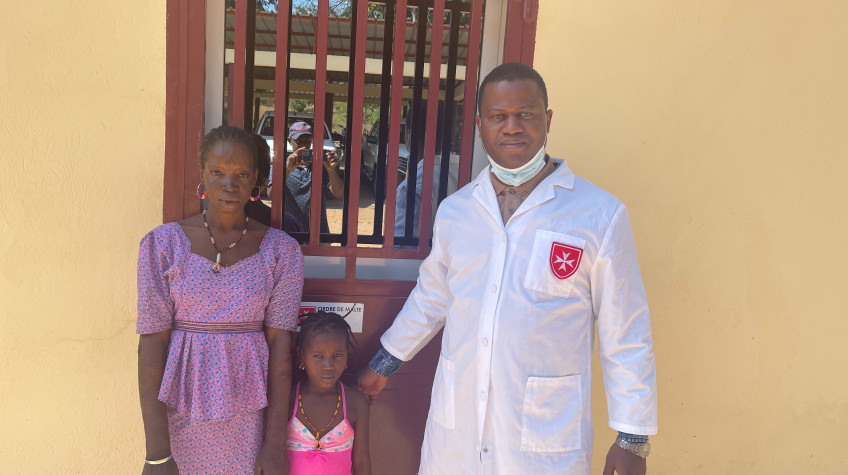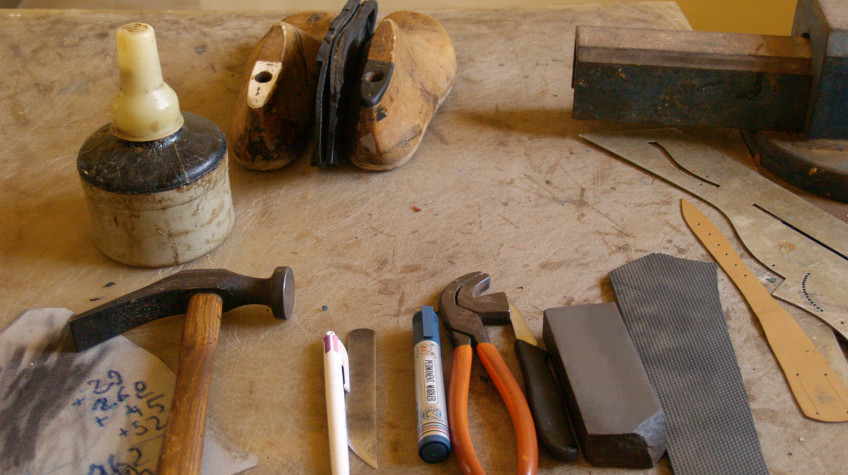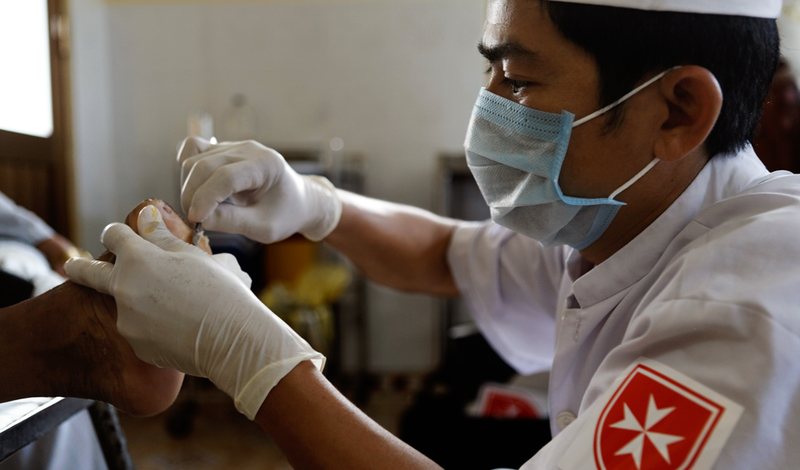On 28, 29 and 30 January, the Order of Malta will be taking part in the 69th World Leprosy Day. Leprosy, or Hansen disease, is one of the neglected diseases which is still present in many countries in the world. The Covid pandemic has had a terrible impact on people suffering from Leprosy and their families. Lockdowns implemented by governments have made it harder for them to access treatment and care. Hansen disease affects mostly low-income families whose precarious conditions have been further exacerbated by the pandemic.
Ordre de Malta France and the Ciomal Foundation (Order of Malta International Campaign against Leprosy), have been for decades at the forefront in the fight against leprosy. Every year, on World Leprosy Day they launch a fund-raising initiative to finance diagnosis and treatment, as well as the reintegration of treated patients and the training of medical staff.
Ordre de Malte France teams are present in 11 countries and every year some 30 thousand people are treated for leprosy and its complications. Over the past 50 years, as many as 500 African, French, Vietnamese and Cambodian doctors have been trained.
Dr Amadou Tidiane Sow has been working at the Maladho Bah Health Centre in Pita, Guinea-Conakry, for ten years. Trained in leprosy care by the National Leprosy Control Programme and at the Order of Malta’s Hospital Centre in Dakar, Dr Sow is now one of the referral doctors at the Pita Health Centre. The fight against leprosy is one of the major activities there. The Maladho Bah Health Centre in Pita has its own shoe repair shop to make custom-made shoes for people suffering from the after-effects of leprosy.
“Ten people work on this disease at the centre: screening, medical care, shoe making and PIRP (Programme for the Prevention of Disability and Physical Rehabilitation) are offered” explains the doctor. “All complicated cases requiring hospitalisation are referred to Pita,” he says.
As with any type of infectious disease, leprosy is no exception to the rule: the earlier it is detected, the easier it is to treat. “The detection of leprosy is carried out by our agents in all suspected cases, i.e. in any person showing spots on the body,” explains Dr Sow. This is the first step. Then comes the care of the patient: registration of the patient, immediate care, prescription of medication to ensure support – free of charge – throughout the treatment.
For almost 40 years, Ordre de Malte France has been working in this region of Guinea to cure people suffering from leprosy and its after-effects.












